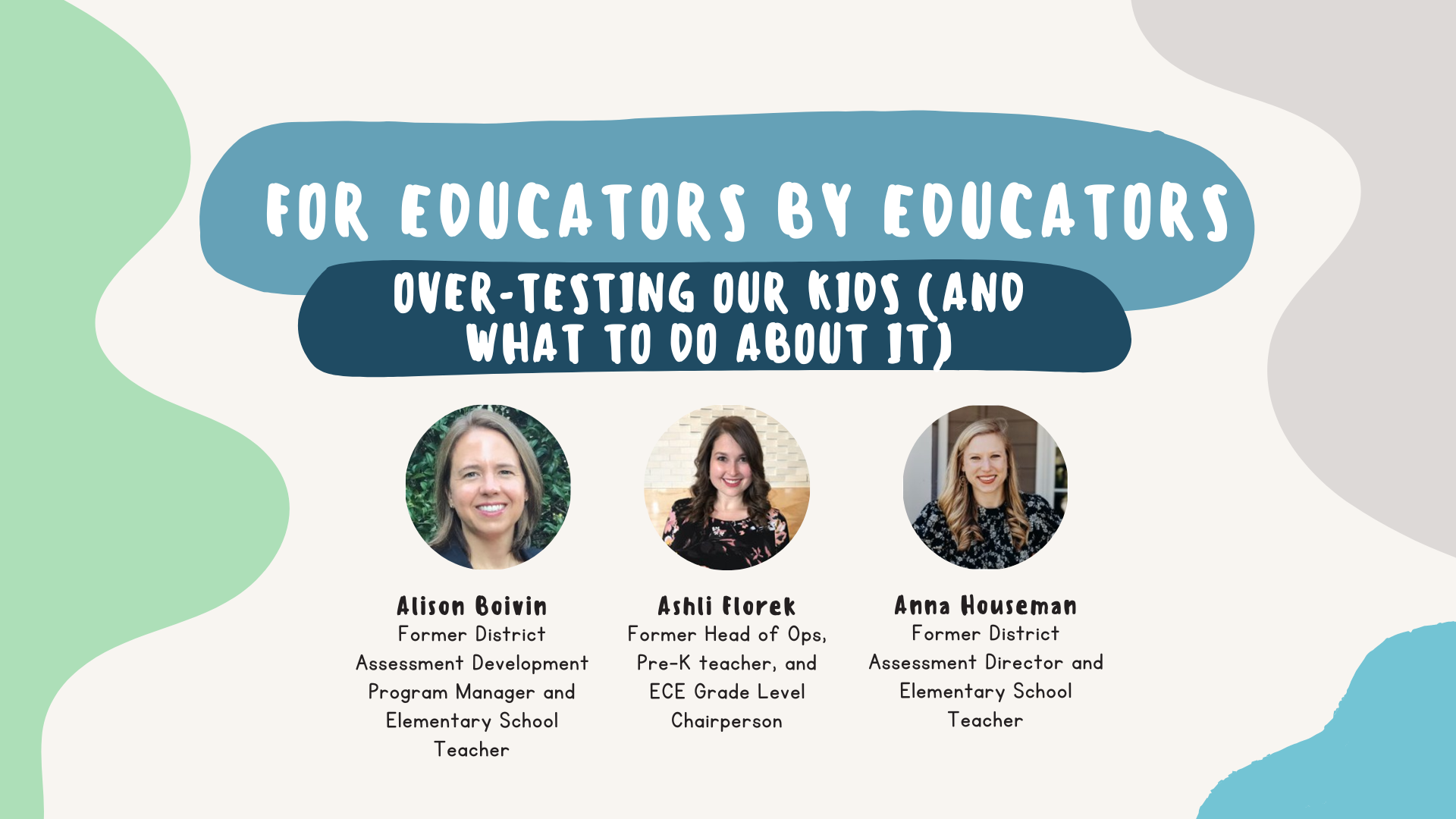
Our students are over-tested. What can we do about it?
Over-testing students is a widespread issue among schools that can undermine the efficacy of learning. To combat this, Riverside Insights’ own Anna Houseman, Ashli Florek, and Alison Boivin shared their experiences as former educators and discussed strategies to alleviate stress on students while ensuring consistent academic progress through data-informed decisions.
The combination of state- and district-mandated tests along with end-of-unit tests can place undue pressure on students who often must prepare for and perform during multiple tests on the same day. Especially in RTI, Special Education, and ESL settings, frequent testing to determine the right instruction can overwhelm students. Our speakers offered two strategies to help alleviate the stress of over-testing.
%20(1040%20%C3%97%20940%20px)%20(1240%20%C3%97%20940%20px)%20(1).png?width=603&name=Copy%20of%20Copy%20of%20IAAT%20Infographic%20%23%201%20(940%20%C3%97%201000%20px)%20(1040%20%C3%97%20940%20px)%20(1240%20%C3%97%20940%20px)%20(1).png)
1. Collaborate to Create a Comprehensive Testing Schedule
A comprehensive testing schedule allows educators to map out each mandated test and unit test throughout a month or schoolyear to afford both students and teachers the opportunity to focus their energy on one subject matter at a time. Boivin suggests using a laminated calendar to coordinate testing times:
“Write out the state and district-mandated tests where you don’t have wiggle room with the time frame, discuss the purpose of that test, which grade levels participate, and what data you glean from it. Then, classroom teachers can look at their unit tests and space those out accordingly because that’s where you have wiggle room.”
Of course, the data matters. Houseman says, “Data is essential to understanding where your students are and how to get our students from Point A to Point B.”
Florek adds, “A big component of Pre-K is center time, so the data allows us think critically about how we’re pairing students during that time. Sometimes you want students of the same achievement level to be at the same center, and sometimes you want to pair a student who exhibits mastery in a certain objective with someone who might be struggling with that.”
However, too much data collection through testing can leave teachers feeling tethered to technology at a cost to more organic interactions with students and student stress levels. In response, our roundtable suggests testing less and assessing more.
2. Test Less and Assess More
To differentiate between the two, Boivin says, “Testing is the summative end of the year or unit tests. Instruction has taken place, and it’s that measure of what students know and what they’ve learned over that period of time. Typically, it’s an obtrusive, written test that involves both preparation and pressure. A formative assessment is unobtrusive in the sense that students don’t even know that they’re being evaluated.”
%20(2).png?width=627&name=FEBE%20Formative%20Assessment%20Infographic%20(1200%20%C3%97%20800%20px)%20(2).png)
Using formative assessments like these can ease pressure on students and teachers while simultaneously and unobtrusively gathering the necessary data to inform classroom instruction.
As Houseman says, “Written tests sometimes don’t tap into natural strengths or where students are most comfortable. It’s not necessarily the best representation of what they learned.”
Stay tuned for future blogs as we recap our summer webinar series, For Educators, By Educators (FEBE), and highlight the best practices and tactical tips our educators have found successful. To continue the conversation, follow our LinkedIn group, "From Insights to Action: A Riverside Insights Network," to connect with the Riverside Insights educators featured in this blog.




